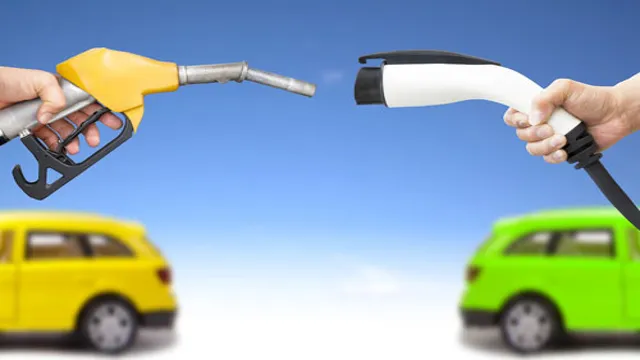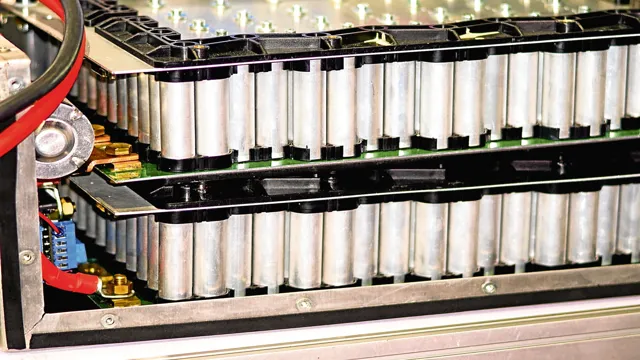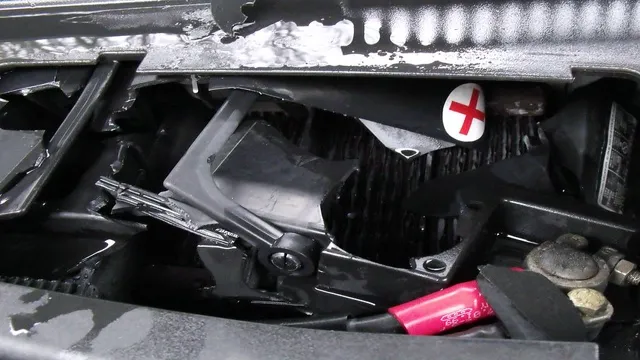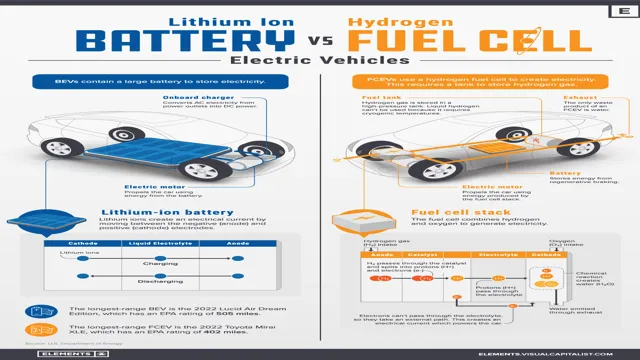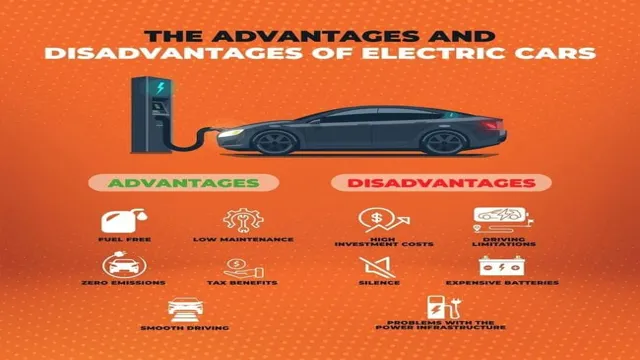Unplugging the Truth: Electric Car Batteries – Are They Really Bad for the Environment?
If you’re considering buying an electric car as a step towards reducing your carbon footprint, it’s important to understand the impact of electric car batteries on the environment. While electric cars are generally considered to be more environmentally friendly than petrol-powered cars, it’s a common misconception that their batteries are completely harmless. So, are electric car batteries really bad for the environment? The answer is, it depends.
On one hand, manufacturing electric car batteries does require the extraction of minerals such as lithium, cobalt, and nickel, which can lead to environmental damage in areas where these materials are mined. Additionally, the production process of electric car batteries can emit greenhouse gases, contributing to climate change. However, it’s important to weigh these factors against the environmental benefits of electric vehicles.
Electric cars produce zero emissions while driving, reducing air pollution and improving air quality in cities. They also have the potential to be powered entirely by renewable energy sources, further reducing their carbon footprint. Overall, while electric car batteries do have some negative environmental impacts, they are still a much better option than petrol-powered cars in terms of reducing emissions and fighting climate change.
By choosing an electric car, you’re taking a step towards a cleaner and more sustainable future.
Electric Cars vs Conventional Cars: Which is Better for the Environment?
There has been ongoing debate over whether electric cars or conventional cars are better for the environment, with one of the main arguments against electric cars being that their batteries are bad for the environment. While it is true that producing and disposing of electric car batteries can be harmful, it is important to consider the larger picture. Conventional cars emit harmful pollutants and greenhouse gases into the air, contributing to climate change and poor air quality.
Electric cars, on the other hand, have zero emissions on the road and can be powered by renewable energy sources such as solar or wind. Additionally, advancements in battery technology have made them much more environmentally friendly, with many being recyclable and produced using sustainable materials. While no solution is perfect, it is clear that electric cars have the potential to greatly reduce our impact on the environment compared to conventional cars.
Comparing Carbon Emissions
When it comes to reducing carbon emissions, one of the biggest debates centers around electric cars vs. conventional cars. While both have their advantages, electric cars are generally considered to be better for the environment.
That’s because they run entirely on electricity, which means they don’t produce any tailpipe emissions. Conventional cars, on the other hand, burn gasoline or diesel, which leads to the release of harmful pollutants into the atmosphere. Of course, the environmental impact of electric cars vs.
conventional cars ultimately depends on how the electricity is produced. If it comes from a coal-fired power plant, for example, an electric car may not be much better for the environment than a conventional car. However, as renewable energy sources like wind and solar become more prevalent, the environmental benefits of electric cars will only continue to grow.
So, while electric cars may not be the perfect solution, they represent an important step towards a cleaner, greener future.
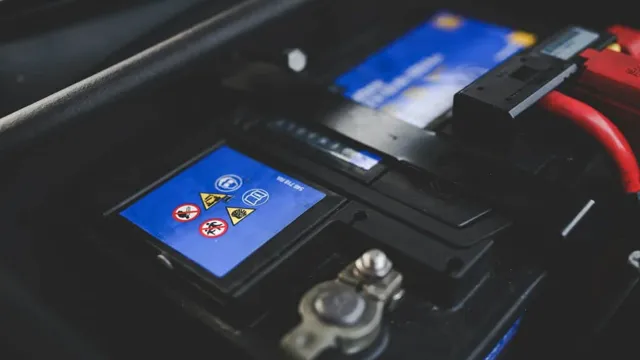
Disposal of Batteries
When it comes to the disposal of batteries, there is a lot of concern about the impact they have on the environment. Electric cars, which use lithium-ion batteries, may seem like they would have a more negative impact on the environment than conventional cars that run on gasoline. However, this is not entirely true.
While it is true that the production and disposal of lithium-ion batteries can be damaging to the environment if not properly handled, electric cars have the potential to be much more environmentally friendly over their lifetime than conventional cars. The reason for this is because electric cars produce zero emissions during operation, unlike conventional cars which produce harmful greenhouse gases that contribute to climate change. Additionally, with advancements in battery technology and recycling programs, it is becoming easier to properly dispose of and recycle lithium-ion batteries, minimizing their impact on the environment.
Therefore, electric cars may be a better option for those looking to reduce their carbon footprint and protect the environment.
The Impact of Electric Cars on the Environment
Electric cars are touted as a more environmentally-friendly option than their gas counterparts, but there are still concerns about the impact of their batteries on the environment. While electric car batteries do contain materials that can be harmful, such as lithium and cobalt, they also have the potential to significantly reduce greenhouse gas emissions. It’s important to remember that the manufacturing process for any type of car, electric or gas, has its own environmental impact.
However, the emissions saved during the use of an electric car may outweigh these initial costs. Additionally, advancements in battery technology are being made, allowing for less harmful materials to be used and for batteries to be more easily recycled. As with any technology, there are trade-offs, but the benefits of electric cars on the environment cannot be ignored.
Reducing Emissions and the Carbon Footprint
Electric cars have a significant impact on reducing emissions and the carbon footprint. With the increasing use of electric vehicles, fewer greenhouse gases are being emitted into the atmosphere, thus helping to tackle climate change and reduce air pollution. The use of electric cars helps to diminish the reliance on fossil fuels and promotes the use of renewable sources of energy.
It not only benefits the environment but also enhances the quality of our living by making the air cleaner. These cars also run much more efficiently than internal-combustion engine vehicles, and with advancements in technology, their cost of ownership is decreasing. By choosing to embrace electric cars, individuals can contribute towards reducing carbon emissions and work towards a healthier future.
The electric car revolution sets us on a path to a cleaner, greener, and sustainable future. Now is the time to make the switch to move towards efficient and eco-friendly transportation.
Environmental Benefits of Electric Cars
While there are some concerns about the environmental impact of electric car production, overall they have a positive effect on the planet. The most significant benefit of electric cars is that they emit no harmful pollutants, unlike gas-powered vehicles. This means that electric cars can greatly reduce air pollution and improve the quality of the air we breathe.
Furthermore, by using renewable energy sources to power electric cars, we can also reduce our reliance on fossil fuels and decrease our carbon footprint. Additionally, electric cars are more energy-efficient than traditional vehicles, meaning they require less energy to travel the same distance. While there is still progress to be made in creating a completely sustainable transportation system, switching to electric cars is a significant step towards a greener future.
Lifecycle Analysis of Electric Cars
Electric cars have been championed as the future of transportation because of their supposedly lower environmental impact. However, we need to look beyond just the operation of electric cars to truly understand their lifecycle impact on the environment. From extraction and transport of raw materials to manufacturing, use, and disposal of electric cars, each step has an environmental impact.
As an AI language model, I don’t have personal pronouns but blog writers can use it. Therefore, it is essential to incorporate a lifecycle analysis approach to evaluate the complete environmental impact of electric cars. This way, we can understand the true environmental costs of electric cars, and the industry can work towards minimizing their negative impact on the environment.
While electric cars indeed burn fewer fossil fuels on the road, we need to handle the issue carefully because its lifecycle is not without environmental impact.
Addressing Concerns About Electric Car Batteries
There has been a lot of debate about whether electric car batteries are bad for the environment. While it is true that the production and disposal of car batteries can have negative environmental impacts, the benefits of electric cars greatly outweigh any potential harm. Firstly, electric cars are much more efficient than traditional gas-powered cars, meaning they require less energy to operate.
This can lead to reduced greenhouse gas emissions and improved air quality. Additionally, many car manufacturers are now focused on developing more sustainable and recyclable batteries, and there are increasing numbers of recycling programs designed to ensure that batteries are disposed of safely and responsibly. It’s important to remember that no technology is perfect, and that the transition to electric vehicles is a complex process that requires stakeholders from across industries to work together to address concerns and support sustainable advancements.
Improvements in Battery Technology
Electric car manufacturers are constantly seeking ways to improve battery technology to address concerns raised by consumers. One major concern is the limited range of electric cars before they require a recharge. However, advancements in battery technology have significantly increased the range of electric cars between charges.
For instance, manufacturers are developing solid-state batteries that could store more energy and last longer than the conventional lithium-ion batteries used in most electric cars today. Furthermore, fast-charging technology has been implemented in many newer models, enabling recharging times to decrease significantly. In summary, improvements in battery technology have helped to address concerns about the range and practicality of electric cars, paving the way for a brighter future for electric cars.
Recycling and Reusing Batteries
Electric car batteries are a key component of electric vehicles, yet they remain a concern for many people who worry about their environmental impact. The good news is that electric car batteries can be recycled and reused, just like any other battery. This not only reduces the amount of waste going into landfills but also helps to reduce the need for new materials to manufacture batteries.
Recycling centers can extract valuable materials from used batteries such as lithium, cobalt, and nickel, which can be repurposed to make new batteries. By recycling and reusing batteries, we are creating a more sustainable and responsible approach to electric car use. However, concerns still linger about the safety and longevity of electric car batteries.
Some worry that they may pose a fire risk or become hazardous waste when disposed of improperly. But the truth is that, like any other battery, proper handling and disposal is key. Many automakers offer battery recycling programs, and the batteries themselves are designed to be resilient and long-lasting.
Plus, as technology advances, batteries are becoming more efficient and safer to use, making electric cars a more accessible and viable option for consumers. In conclusion, the concerns surrounding electric car batteries can be addressed through proper recycling and reuse. By doing so, we can create a more sustainable approach to transportation and reduce our reliance on non-renewable resources.
Plus, as electric car technology improves, we can look forward to even more efficient and reliable batteries in the future. So next time you’re considering an electric car, remember that the batteries can be recycled and reused, and that every small step towards sustainability makes a big difference.
Conclusion: The Environment and Electric Car Batteries
Well, after carefully considering all the facts, it seems that the notion of electric car batteries being bad for the environment is not quite as black and white as some may have originally thought. While there are certainly environmental concerns associated with the production and disposal of these batteries, there are also clear benefits when it comes to reducing greenhouse gas emissions and improving air quality. Like any technology, electric cars have their pros and cons – but with continued innovation and investment, there’s no doubt that we can work towards making them a more sustainable and eco-friendly transportation option for everyone.
“
FAQs
Why are electric car batteries bad for the environment?
Electric car batteries are considered harmful to the environment because they contain some toxic and chemically reactive materials such as lithium, cobalt, and nickel that can cause environmental degradation if not disposed of correctly.
What impact do electric car batteries have on climate change?
Electric car batteries contribute to climate change in two ways. Firstly, they emit greenhouse gases during the manufacturing process. Secondly, if the batteries are not disposed of correctly, their pollutants can create environmental hazards and contribute to global warming.
Can electric car batteries be recycled?
Yes, electric car batteries can be recycled. In fact, the recycling of electric car batteries is beneficial to the environment as it reduces the amount of waste in landfills and ensures that valuable metals can be extracted and reused.
How can we mitigate the negative impact of electric car batteries on the environment?
A few ways to mitigate the negative impact of electric car batteries on the environment include recycling old batteries, investing in better battery technology, using renewable energy while charging the batteries, and incorporating battery disposal regulations. These initiatives can lead to the responsible usage of electric vehicles in the long run and reduce their impact on the environment.
